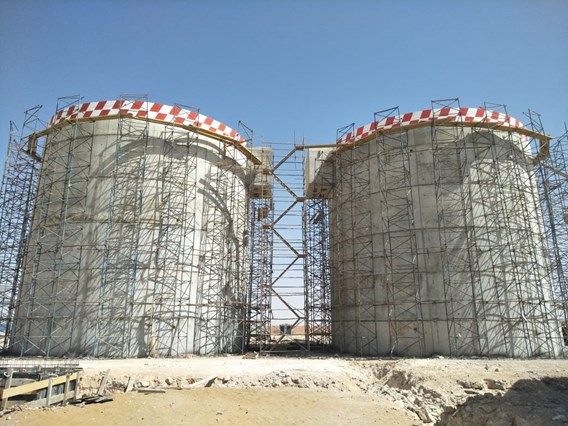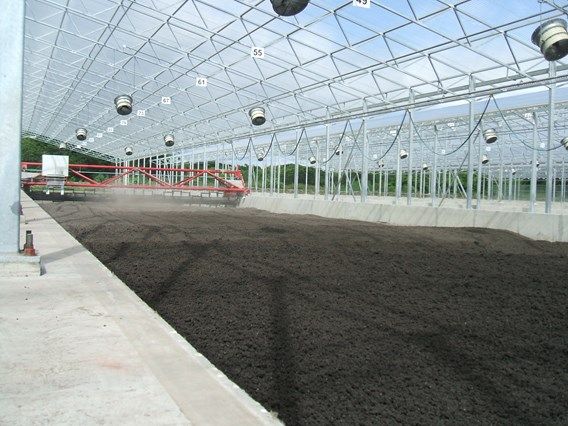Morocco to Get a Solar Sludge Drying Facility for a New Wastewater Treatment Plant
Published on by Water Network Research, Official research team of The Water Network in Completed Designs
The sludge produced as a by-product from the new wastewater treatment plant will be treated and reduced to a dry solids content of approximately 80%.
Biwater has been awarded a $7.5m contract by the Office National de l’Electricité et de l’Eau Potable (ONEE) to design and construct a solar sludge drying facility for a new wastewater treatment plant in Laâyoune, southern Morocco.

Laayoune Wastewater Treatment Plant in Construction – Digester Tanks One and Two
The solar drying greenhouse will be designed to sustainably dry the effluent sludge produced as a by-product from the Laâyoune wastewater treatment plant. The treated sewage sludge will be reduced to a dry solids content of approximately 80%, which will be safely transferred off-site for its disposal.
Commenting on the contract award, Giles Jackson, Regional Director for Africa, said, “We are very pleased to be awarded this contract for the city of Laayoune. The solar sludge drying facility will provide state-of-the-art technology, ensuring the sludge treatment meets environmental requirements and emission standards.”
Following construction, Biwater will provide 12 months of operational assistance and maintenance to the local workforce.
Under a separate contract with ONEE, Biwater is currently constructing Laâyoune’s main wastewater treatment plant, with approximately 75% of the construction already completed and proceeding ahead of schedule. This new wastewater infrastructure will reduce the ecological impact of wastewater disposal and provide treated water for reuse and irrigation.

Biwater’s Solar Sludge Drying Facility in Managua, Nicaragua
“This second project award for Laâyoune emphasizes the importance of wastewater treatment and sustainable waste management. We are proud to continue our long-standing work to improve sanitation conditions for all across the region,” added Giles Jackson.
Laâyoune is home to around 40% of the regional population in southern Morocco. The city does not currently have an adequate wastewater treatment infrastructure, and therefore this construction programme is vital for providing improved sanitation to the people of Laâyoune.
Source: Biwater
Media
Taxonomy
- Treatment
- Effluent
- Industrial Wastewater Treatment
- Sludge Treatment
- Liquid Waste Management
- Water Reuse & Recycling
- Sludge Management
- Sludge Drying
- Waste Water Treatments
- Water Reclamation
- Industrial Water Reuse
- Solid Wastes & Wastewater Recycling
- Solar Energy
- Infrastructure
- Design & Construction
- Wastewater Treatment Plant Design
- Distribution Network Management
- Waste Water Serviceability
- Solar Power
- Waste Management
- Solid Waste Disposal
- Sludge Treatment & Management